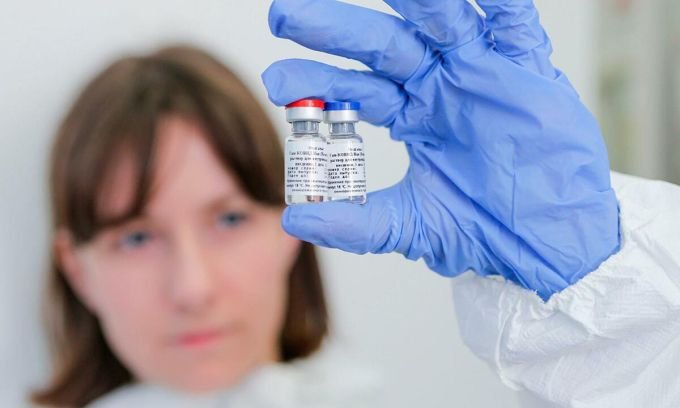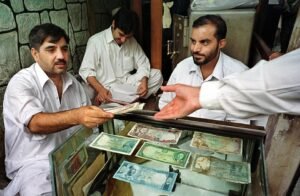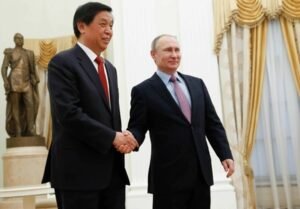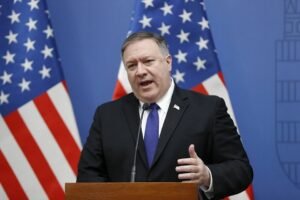
The key to helping Russia cross the finish line in the vaccine race 3
Russia on August 11 surprised the international community when it announced approval of the world’s first Covid-19 vaccine, named Sputnik V, the same name as the world’s first satellite launched into space by the Soviet Union.
Officials hope Sputnik V, licensed after less than two months of human testing, will help revive an economy severely damaged by the pandemic.
Despite President Vladimir Putin’s declaration of `victory` in the Covid-19 vaccine race, officials in many countries and medical experts are skeptical that Russia has `blazed the stage` to reach the finish line first, and are concerned.
Russia’s Covid-19 vaccine was developed by the Gamaleya National Research Center for Epidemiology and Microbiology.
The Russian side immediately spoke up to defend Sputnik V against criticism.
Kirill Dmitriev, director of the Russian Direct Investment Fund (RDIF), affirmed that Moscow has researched and developed vaccines for Ebola and Middle East Respiratory Syndrome (MERS) in recent years, giving Russia experience and foundation.
`We are lucky because nCoV is relatively similar to MERS and we are ready to release a vaccine against MERS after two years of research. So we modified it a bit to become a vaccine against Covid-19.
In an interview with Sputnik, Bryan MacDonald, RT’s journalist specializing in Eastern Europe and Russia, said that the difference between Russia and the West in the vaccine race is that Moscow’s research system is mainly state-funded and
MacDonald added that this management method is a `legacy from the Soviet era` and that has helped Moscow surpass Washington in some areas such as missile defense, space technology…, even though Russia has a small population.
`The Russians say they have basically been researching vaccines 20 years ago. For example, when the SARS outbreak broke out more than a decade ago, the Russians immediately started the race to find a vaccine, like the US and UK.
According to this journalist, many years of experience researching SARS and similar viruses help Russia quickly develop a Covid-19 vaccine.
The Russian Ministry of Health approved Sputnik V before even starting the important testing step on a scale of thousands of people, known as phase three trials and is a necessary premise for the vaccine to be approved by regulators.
Many critics believe that Russia’s determination to win the vaccine race is partly due to political pressure from the Kremlin, as it wants to assert Russia’s global scientific capabilities.
But Srijan Shukla, editor of The Print, said that those who understand the history of Russia’s radical drug testing will not be surprised by this rapid development process.
In early April, Alexander Ginzburg and 100 of his colleagues injected themselves with a potential Covid-19 vaccine, even before testing it on monkeys.
This reckless scientific behavior of Ginzburg actually originated from the self-experimentation tradition of Soviet medicine.
Although there were many people who experimented with such drugs, Marina Voroshilova and Mikhail Chumakov became symbols of this idea during the Soviet era.
In the 1950s, Chumakov was the founder of the Russian polio research institute.
In 1955, Sabin sent three virus strains to his Soviet colleague Chumakov.
Chumakov’s experiment convinced senior official Anastas Mikoyan to agree to widespread testing, eventually leading to the decision to mass produce the polio vaccine used around the world later.
Chumakov’s three children all grew up to become virologists, and decades later, they still approve of their parents’ ways.
`There needs to be someone who tries first. I’ve never been angry about that. I think it’s good to have a father like that, who believes enough in what he does and is sure he won’t hurt himself.`

Medical staff prepare to take blood from volunteers participating in Covid-19 vaccine trials at Budenko Military Hospital, on the outskirts of Moscow, in mid-July. Photo: AP
Not only Russian scientists, but Russian people are also very excited about this method.
This is a win-win situation.
However, these tests sometimes lead to unwanted results and side effects.
Beginning in the mid-19th century, many Russians pursued the idea of conducting experiments that could potentially make them immortal.
Aleksandr Bogdanov, a famous science fiction writer, also mentioned the concept of immortality, saying that exchanging blood with others would help people age backwards.
Despite Western skepticism, Russia announced that it can provide the Sputnik V vaccine to countries in the next few months.







